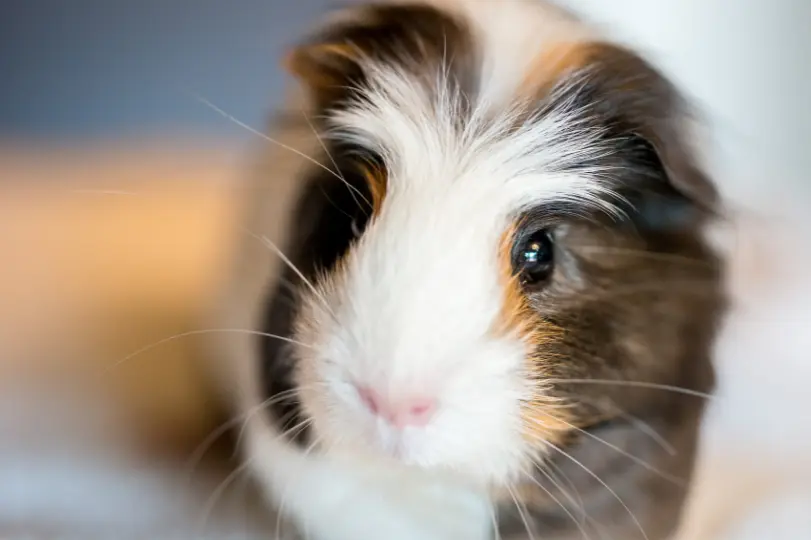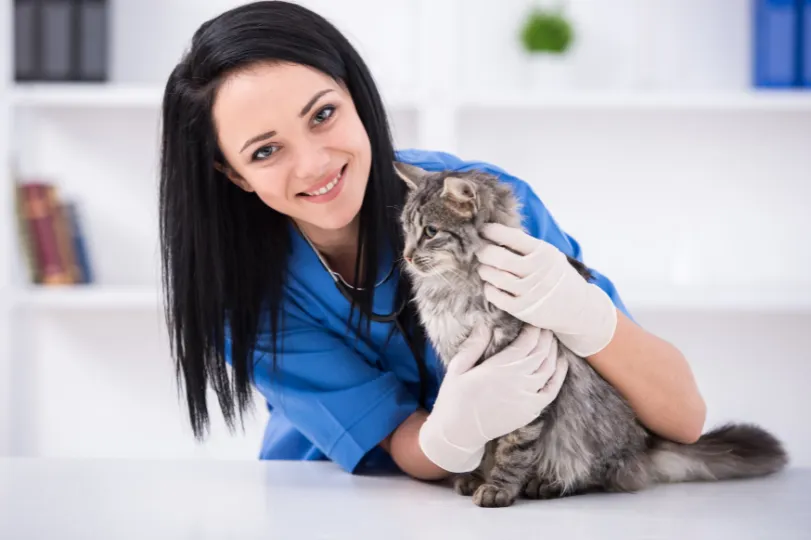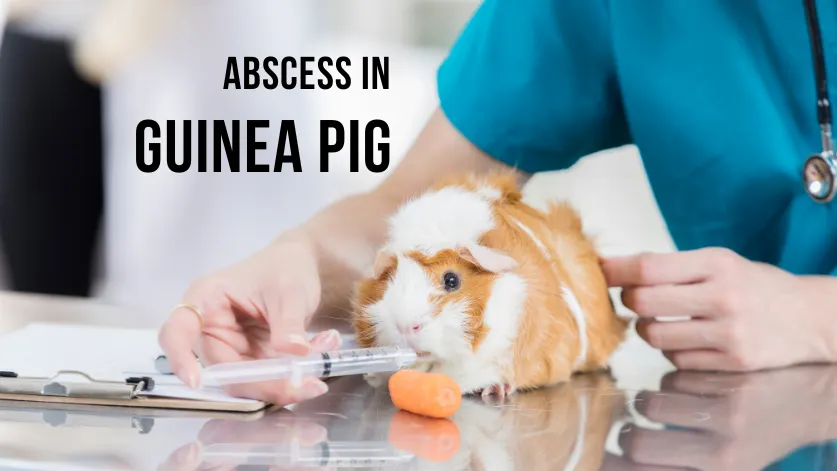
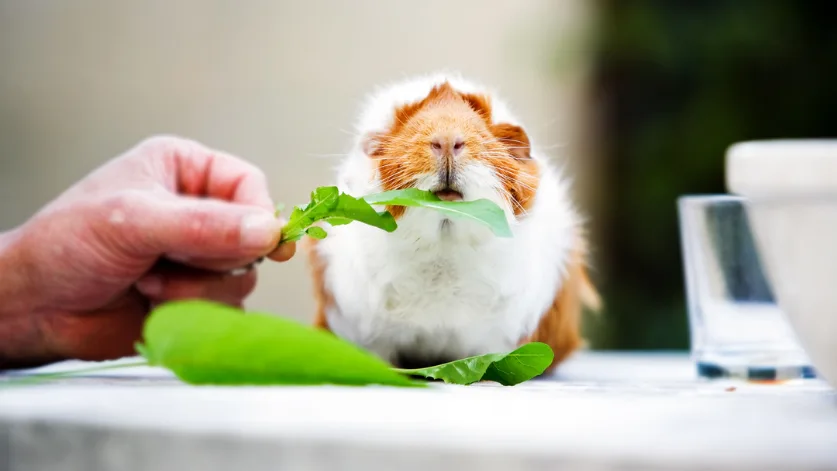
Abscess in Guinea Pigs” is a common health problem many pet owners face. Despite its scariness, it can be well-managed with the right information and care. Let’s briefly dive into why it happens, how to spot it, and what we can do about it with our small furry friends.
What exactly is an abscess? An abscess refers to a localized collection of purulent infective material, most commonly rendered as pus, nestled within a cavity. Being surrounded by skin makes it susceptible to not just infections from outside but also underlying health complaints already present inside the guinea pig.
Causes of Abscesses in Guinea Pigs
In our furry friends, ‘an abscess in guinea pigs‘ can be caused by numerous factors. Often, the immune system’s reaction to a foreign object, such as a splinter, is the trigger. Here’s what happens: bacteria scramble to the invading entity and accumulate around it. This outpouring of bacteria escalates into pus formation, resulting in an abscess on your guinea pig.
Abscesses can also happen when guinea pigs get bitten while fighting. Dental diseases caused by bacteria and untreated wounds can also lead to abscesses. Further, the presence of dangerous bacteria can make these situations worse.
Symptoms of Abscesses in Guinea Pigs
Generally, an abscess gains visibility through a quick-growing lump in a specific spot. This lump or swelling, full of pus, is an early sign. The pig might feel pain, varying based on the abscess’s size and spot.
Internal abscesses can trigger behavior changes or reduce the pig’s happiness. Thus, identifying an abscess asks for detailed observation of the guinea pig’s behavior and frequent body checks.
Treatment for Abscesses in Guinea Pigs
Treating an abscess often mixes surgery with other medical actions. It involves removing any foreign material stuck inside and draining the pus. Also, antibiotics might be needed to shrink the abscess and clear the leftover infection.
It’s crucial to involve a vet. Handling the treatment carelessly could risk a guinea pig’s life. After the treatment ends, there should be thorough follow-up care. This involves frequent cleaning, dressing changes, and continued antibiotics until the pet recovers fully.
Key Considerations in Abscess Management
While early signs of a superficial abscess may sometimes be treated successfully at home, it is essential to understand the repercussions of inadequate or inappropriate treatments in the case of more severe, systemic infections. Mistimed or incomplete therapies could simply intensify the situation, leading to a more unhealthy guinea pig, hence always remember to consult with a professional.
Advanced cases often require surgical intervention to remove the walled-off capsule completely. Any fragments left behind may lead to the reformation of the abscess. The list of complications also includes possible tissue necrosis and the systemic spread of bacteria to other organs. Therefore, precision in surgery as well as proper treatment necessitate professional veterinary intervention.
Additional Therapies
Once diagnosed and the appropriate intervention carried out, your vet may prescribe a course of antibiotics in order to destroy any bacterial residue and minimize scarring of the affected organ. Moreover, paying attention to wound dressings and complying with vet recommendations can ensure successful treatment outcomes.
Prevention and Care: Your Role as a Guinea Pig Parent

As a guinea pig keeper, spotting the early signs of an abscess and acting promptly can greatly improve their well-being. Stepping beyond your scheduled check-ups, a high standard of cleanliness and a safe atmosphere can drastically reduce the likelihood of abscesses.
Performing regular grooming routines can not only strengthen your bond with your guinea pig. It also allows you to detect skin irregularities such as lumps, scrapes or teeth marks early on. Absolutely. Overcrowded indoor areas and cramped conditions are a big no-no for guinea pig dwellings. Room to move, play and breathe easily can go a long way in promoting their wellbeing and avoiding health issues like abscesses. These often provide fertile ground for air-born skin problems.
That’s correct. With proper care, prompt attention to health issues, and regular veterinarian check-ups, we can increase the chances of our guinea pigs living healthy, abscess-free lives. Knowledge and awareness about abscesses are the first steps towards effectively preventing them in our pets. But, there’s brighter news on the horizon. Critical to every guinea pig owner’s understanding should be the recognition that abscesses, while common, are significantly preventable. With careful attention to their well-being, prompt action during bouts of health issues, and regular check-ups, we can aid our wide-eyed companions in not just surviving, but truly flourishing. Intervention done right and at the right time makes all the difference.
Lastly, remember professional expertise remains unbeatable. Engaging in informative conversations with your vet can greatly boost your skills in looking after your pets. This typically leads to a healthier, happier guinea pig. Keep that channel of communication open and deeply valued—your little furry friend is sure to appreciate it!
FAQ FOR abscess in a guinea pig
An abscess forms as a well-defined sac of pus, enclosed by skin, that can develop anywhere on a guinea pig’s body.
An abscess can arise from presence of a foreign body like a splinter, untreated wounds, dental diseases, or as a result of bacterial infection.
A guinea pig abscess typically manifests as a quickly growing lump or swelling in a specific area of the body.
Treatment typically involves both surgical and medicinal procedures, often involving removal of any lodged materials, draining of pus, and administration of antibiotics.
Yes, proactive steps such as maintaining good hygiene, preventing fights among guinea pigs in the same enclosure, and regular dental check-ups can significantly reduce the risk of abscess formation.
Immediate veterinary attention should be sought upon noticing any signs of abscesses, such as a lump, a change in behavior, or discomfort in your guinea pig.

How Much Does a Prairie Dog Cost? - PetVet Petfood Tips
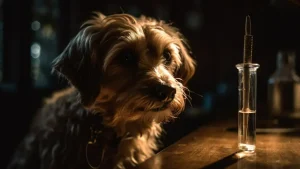
Doxycycline for dogs without vet prescription

Understanding Why vet won't approve chewy prescription
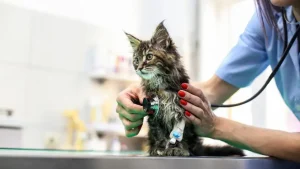
Best Cat Food for Cats with Feline Herpes | Petvet PetFood

Best Low Magnesium Cat Food: A Nutrient Analysis

Understanding Abscess in Guinea Pigs | PetVet PetFood Tips

Top 6 Natural antibiotics for guinea pigs | PetVet PetFood Tips
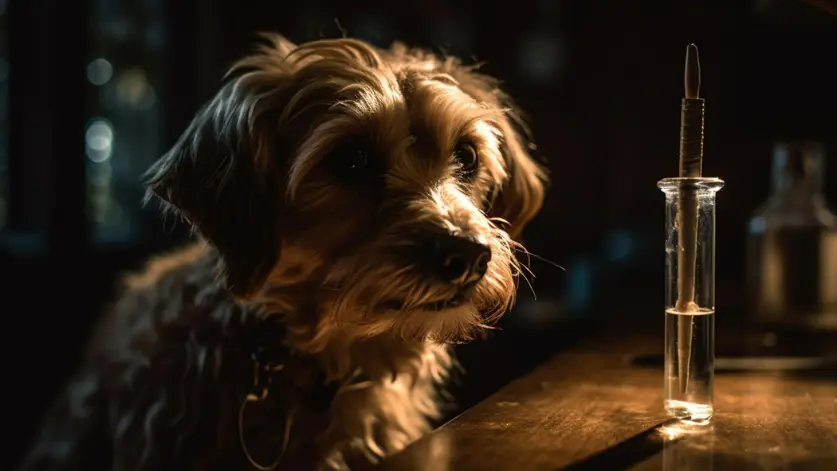
Doxycycline for dogs without vet prescription
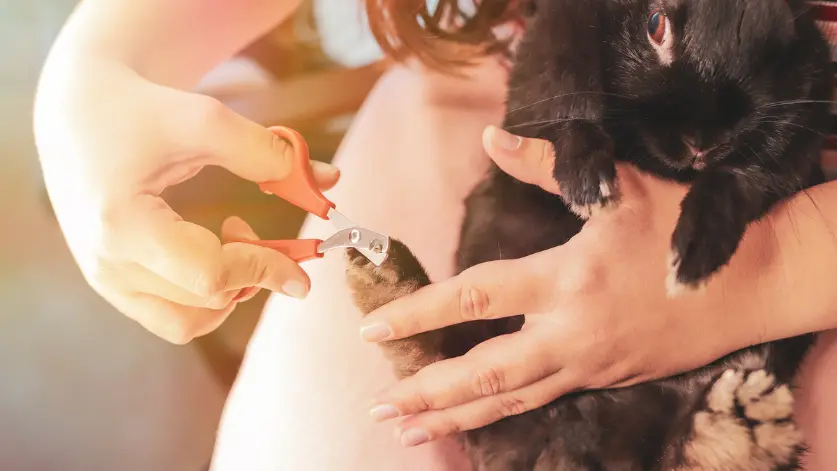
How to keep Rabbits nails short without cutting



